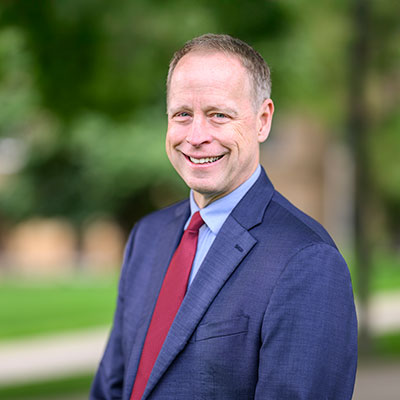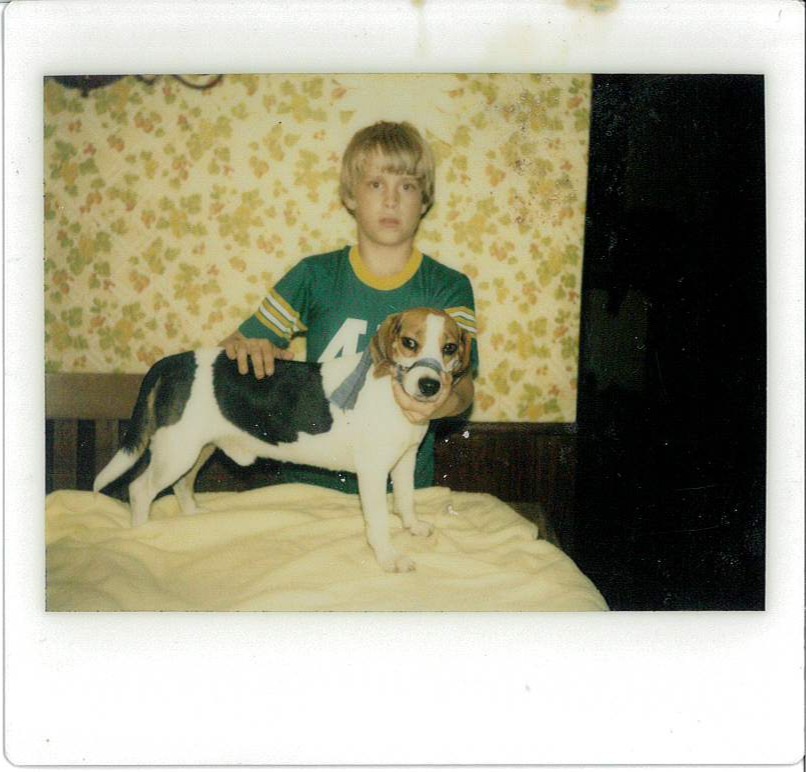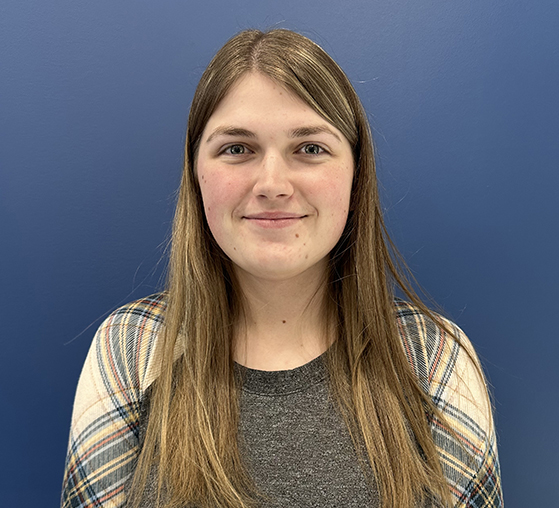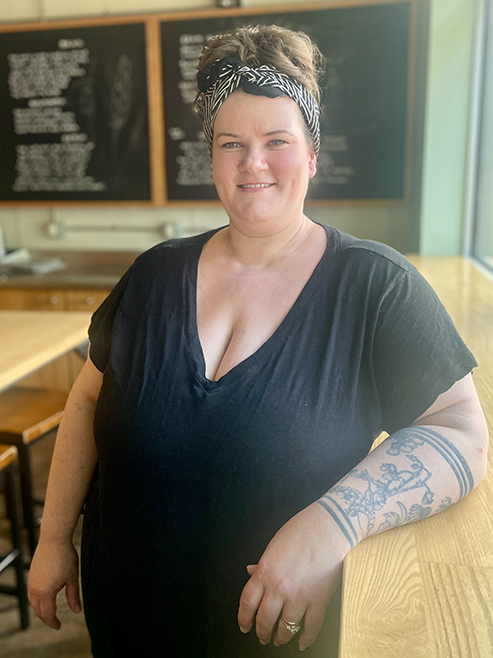Starting his 4-H journey as a member of the Clinton (Mo.) Cool Cats, John Zumbrunnen, Interim Provost and Vice Chancellor for Academic Affairs at UW–Madison, has a lot to say about the role that 4-H played in preparing him for his career.

“I was the emcee at New Student Convocation with literally thousands of new UW-Madison students in the Kohl Center. I am more or less totally comfortable in those public speaking settings, because I did that year after year in 4-H,” said Zumbrunnen.
While he learned valuable life skills, such as plumbing, pet care, and cooking, public speaking and leadership development have proven to be important for his career. Zumbrunnen describes his current job as a complex leadership position with a lot of responsibility. While he did not plan to serve in administration when he was a 4-H youth, Zumbrunnen has leaned on the lessons he learned through 4-H.
“I honestly do think that my 4-H experiences helped ground me and prepare me for that kind of work. Because there are so many leadership opportunities in 4-H you get used to the idea you might in fact be able to be a leader,” said Zumbrunnen. “You might work with an adult volunteer project leader, and then help lead a group of younger 4-H’ers through a project that you’ve already gone through yourself.”
An important part of helping youth be ready for careers, college, and life is ensuring they have the confidence they need to face and overcome the challenges they encounter. Positive Youth Development programs such as UW–Madison Extension’s 4-H center around providing a supportive environment where youth can try new things and explore the world around them. Providing opportunities for youth to experience challenges and explore new things builds personal qualities that are important for success in life, such as open-mindedness, perseverance, and industriousness.

For Zumbrunnen, that environment offered a low-risk space to try and fail. Whether his pig decided to fight with the other pigs in the arena instead of cooperating for the judges, or he made a wrong cut while building a bookcase, having the opportunity to try while surrounded by caring adults was key.
“As a kid, you go through some frustration, and some failure, and you learn that’s not the end of the story.”
A recent study shows that youth engaged in 4-H Youth Development programs are twice as likely to report living life with intentionality and purpose and three times more likely to participate in community service. 4-H youth are often encouraged to take on leadership roles, planning events, running meetings, or organizing service projects. These experiences show youth that they can lead change and positively impact their world.
Developing future-ready youth

As a 5th grader, Megan Faivre thought 4-H would be fun, because she liked seeing all the projects at her county fair. Now, as a college student, she says that 4-H provided much more than the opportunity to explore art, archery, poultry, and woodworking.
“When I first joined 4-H, I was shy and hated talking in front of anyone. I’m still a little shy today, but I have learned how to come out of my shell and speak in front of others,” Faivre said. “Showing at the state fair was a new experience and a little overwhelming. It was something that pushed me out of my comfort zone. The experience allowed me to meet and talk with people from all around the state. Showing animals allowed me to learn responsibility and timeliness.”
Because of her participation in 4-H projects and experiences, Faivre said that she is ready for her next big project. “Throughout my time in 4-H I have gained many life skills,” said Faivre. “All of these things helped prepare me for college.”
Real-world skills
Skills like goal setting, conflict resolution, leadership, and teamwork will be important for Faivre’s future. The Kaufmann Foundation reported that 77% of employers say that students need more real-world skills. A big reason for that? A lot of the jobs that will exist in 2030 haven’t been invented yet.
Exploring their “sparks”, the things that interest them, through project-based learning in 4-H, youth practice those real-life skills in a supportive environment with the encouragement and guidance of adult volunteers.
“Considering that technology is advancing quickly, most jobs today involve new technologies, new equipment, and new procedures that were not part of our daily lives even four years ago,” said Jessica Jens, Extension’s 4-H Positive Youth Development Institute Director. “That’s why our positive youth development framework is centered around building those real-world skills.”
Facilitating openness to challenge and discovery
More than public speaking and leadership, Zumbrunnen credits 4-H with helping him build resiliency and learning how to ask for and incorporate feedback. “4-H teaches you to think about the steps to success: I’m going to sign up for this project, I’m going to start this project, I’m going to finish this project, and along the way, there will be feedback and evaluation that I will need to incorporate. That’s true whether it’s building a bookcase or getting your pig ready to show at the fair.”
The experience of launching a project, completing it, and making improvements based on suggestions and coaching, has helped him excel at research and scholarship as a faculty member and in his administrative roles, Zumbrunnen said.
Encouraging a growth mindset
Providing supportive spaces to try new projects and learn from others also encourages youth to develop a growth mindset, the belief that their abilities and intelligence are not fixed, but can improve through effort, hard work, and practice. A growth mindset can foster curiosity and lead to original and creative solutions to problems, qualities that are essential in today’s complex and ever-changing world.

Being curious and exploring new things was a highlight of 4-H for Molly Maciejewski as well. As a 4-H’er in Sheboygan County, she enjoyed learning new skills and hanging out with friends. Today, she is the Director of Operations at the Madison Sourdough bakery in Madison.
“There weren’t a lot of people involved with agriculture or livestock in our group, but we had projects like sewing, woodworking, cooking, photography and service (like highway clean-up). I participated in all of them!” said Maciejewski. “It made me more interested in making things by hand, and gave me some confidence that I could create, build, craft, and be more self-sufficient.”
Part of that curiosity was inspired by the adult volunteers who offered their time and talents to her group. Their willingness to teach and support her learning continues to impact her today.
“My 4-H group was so successful and offered such varied learning opportunities because our parents all taught 4-H skills. We learned a lot because our parents were all willing to contribute to the group in their own ways.”
Developing a hopeful purpose and a service focus
Both Zumbrunnen and Maciejewski attribute their service mindset to their early experiences with 4-H. The opportunities to serve others within their 4-H clubs, as well as through community service projects, taught them the importance of being involved.
“Mornings spent cleaning the side of the highway weren’t necessarily what I wanted to do as a kid, but seeing the progress afterwards was a valuable lesson. Individually, we are worthy and skilled, but coming together as a group builds community,” said Maciejewski. “4-H reinforces the idea that self-improvement (and some healthy competition) are good, but need to be balanced with the values of helping others as well.”
Offering real-life experiences
In addition to teaching real-world skills, youth need opportunities to explore post-secondary pathways so they can be career-ready. Depending on the needs of each county, 4-H programs like Juntos, Adulting 101, Summer Academy, and other career-focused opportunities help youth better understand their options after high school and how they can prepare for what’s next. 4-H groups offer opportunities to build resumes and participate in mock interviews, working with community members to provide feedback and suggestions. Hands-on, practical programs focused on job readiness help youth increase their confidence as they transition into careers or college.
Faivre continues to take advantage of opportunities provided through 4-H. For the past two summers, she has been a 4-H AmeriCorps member. Working with county educators, Faivre has worked to establish new relationships within the community and develop educational programming for local youth. That opportunity has helped her clarify her career goals. While initially majoring in civil engineering, she changed her major this year.
“I realized that I wanted to be involved with youth, but not a full-time career like a teacher,” said Faivre. Currently, she is studying psychology, hoping to work with youth and families as a counselor.
The complex world youth face today makes their next steps less obvious than they might have been for previous generations. But Jens says that the need to be ready for the future has never been greater. “When we inspire them to explore their interests (“sparks”), we give them the chance to build the real-world skills that Wisconsin youth will need to be beyond ready, leading into the future.”



